
Zydus Cadila—the rising star of vaccines
How Sharvil Patel and Zydus Cadila—one of the most diversified pharma companies in India—are tapping into their experience of developing a H1N1 vaccine to try and find an end to India's Covid-19 woes
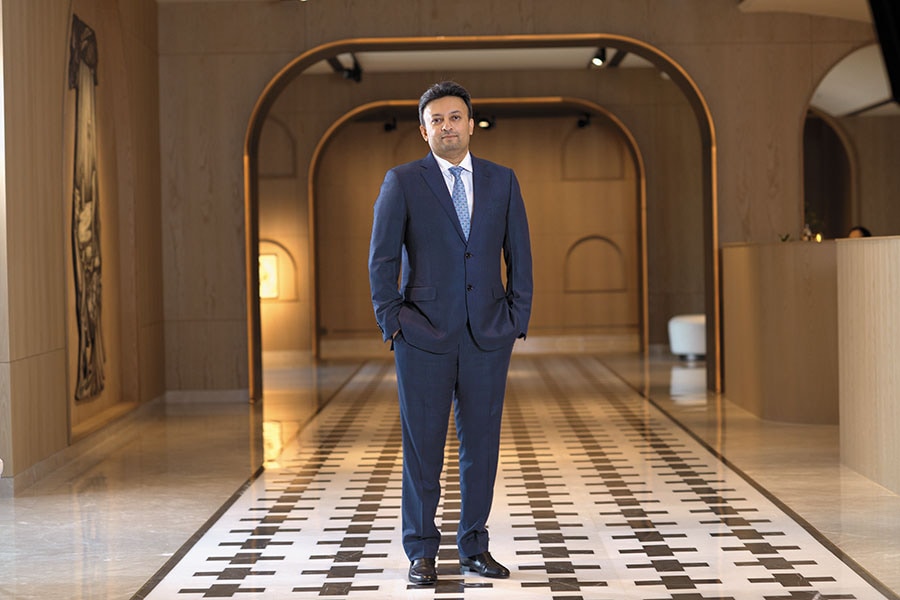 Zydus Cadila managing director Sharvil Patel and his team are counting on their experience with H1N1 to drive Zydus's quest for a Covid-19 vaccine
Zydus Cadila managing director Sharvil Patel and his team are counting on their experience with H1N1 to drive Zydus's quest for a Covid-19 vaccineImage: Mayur D Bhatt
For Sharvil Patel, February 2020 brought back uncanny memories from a decade ago.
The world was battling another pandemic, swine flu—that originated in Veracruz, Mexico, and spread across 74 countries, killing over 18,000 people, according to the World Health Organization (WHO). The unofficial number, though, estimates that the virus may have killed some 500,000 people, between 2009 and 2010. In India, nearly 2,700 people had lost their lives and over 40,000 were affected.
As pharmaceutical companies scrambled for a cure, Ahmedabad-based Zydus Cadila emerged as a dark horse, becoming the third pharmaceutical firm in the world to bring out a vaccine.
“We were able to bring the H1N1 vaccine to market in less than 10 months,” Sharvil Patel, managing director of Zydus Cadila, tells Forbes India in a telephone interview. “We brought a vaccine in a short period and were the third company in the world after the global companies to have an H1N1 vaccine.” The vaccine, VaxiFlu-S, was the first one to be made in India, where scientists at Zydus Cadila’s facility in Ahmedabad grew the virus in live, fertilised chicken eggs to develop the vaccine.
Today, it’s that experience that Patel and his team are counting on to drive Zydus’s quest to find a cure for the coronavirus. The pandemic, which began in December 2019, has so far killed over 1.5 million and affected some 68.3 million worldwide. In India, the virus has affected 9.74 million people and killed over 141,000.
Zydus is currently developing an indigenous vaccine, ZyCov-D, which could be made available in the country as early as March 2021, if it meets all the regulatory approvals. The company is in the midst of Phase 2 trials for which data could be made available in December, before it can start Phase 3 trials. “For us, developing a vaccine came naturally because of the H1N1 vaccine. So, we knew we had the capability of developing one,” Patel says.
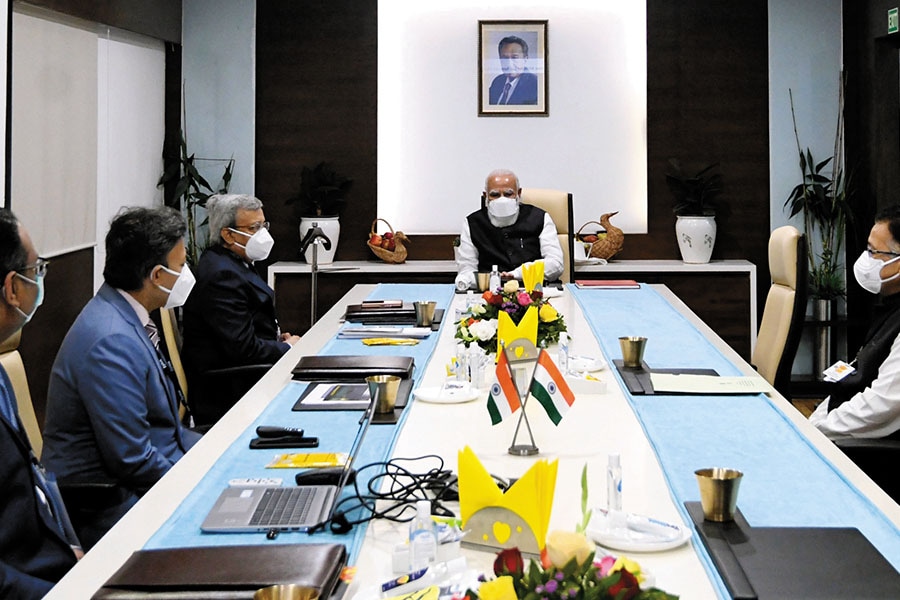 Zydus Cadila was one of the companies Prime Minister Narendra Modi visited on his three-city Covid-19 vaccine tour on November 28
Zydus Cadila was one of the companies Prime Minister Narendra Modi visited on his three-city Covid-19 vaccine tour on November 28Image: Courtesy PIB
That meant that as early as February 2020, when the genetic sequence of the coronavirus was made available, Patel’s team in India and Italy began working on two approaches to find a potential vaccine. Of those, the company shortlisted a DNA-based platform that had the potential to meet with any unexpected mutations of the virus.
“We didn’t know enough about the coronavirus and assuming what happened in H1N1, if there was a mutation that happens to the virus, you would have to actually go through the whole redevelopment [for the vaccine],” says Patel. Many other vaccine technology platforms being developed for Covid-19 currently will have to start redevelopment from scratch if the virus mutates in the future, Patel explains, but because the virus’s DNA construct would remain the same, Zydus hopes to repurpose its vaccine in eight weeks.
The plasmid DNA candidate doesn’t use an infectious agent, like other vaccines, and instead introduces the DNA sequence encoding the antigen. Zydus is also the only company in the country to develop a vaccine on the DNA platform and is now awaiting the efficacy results of its Phase 2 trials, involving some 1,000 volunteers.
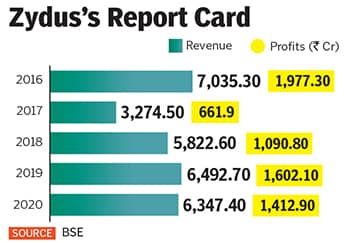
If the vaccine shows a strong response, the company plans to recruit some 30,000 people to conduct its Phase 3 trial, before it decides on the nature of doses to be administered and even starting manufacturing at risk. For now, the company is making the vaccine in small numbers, before it will be ramped up to produce in millions. “Safety is not a concern,” Patel says. “We don’t know the efficacy yet.”
Perhaps, that’s also why, over the past few months, Patel and Zydus have decided to also gamble on a different vaccine, apart from keeping an eye out for potential partnerships where the company can play a key role in distribution and manufacturing. It is now in the pre-clinical trials of a vaccine being developed on a measles vector platform, similar to the one being developed by a US-based pharmaceutical company, Novavax.
“Irrespective of whether a vaccine works or not, we may still bring one more vaccine because we don’t know which vaccine will have what kind of efficacy for a long period of time,” Patel says. “So, it would be a good thing to work beyond one vaccine. Maybe it’s an investment that doesn’t work out, but I think it would be the right thing to work on two vaccines.”
Rising to the challenge
Much of Zydus’s plan to foray into developing a vaccine—at a time when numerous Indian companies were striking partnerships with global pharmaceutical companies to manufacture or sell in India—comes from a strong belief in taking challenges head-on.
“It is in the DNA of the organisation,” Patel, whose father Pankaj Patel is chairman of the ₹48,000 crore company, says. “Whenever there has been a challenge, we have always stood up to the challenge.” That’s something that had been imbibed in the group since it was founded by his grandfather Ramanbhai B Patel.
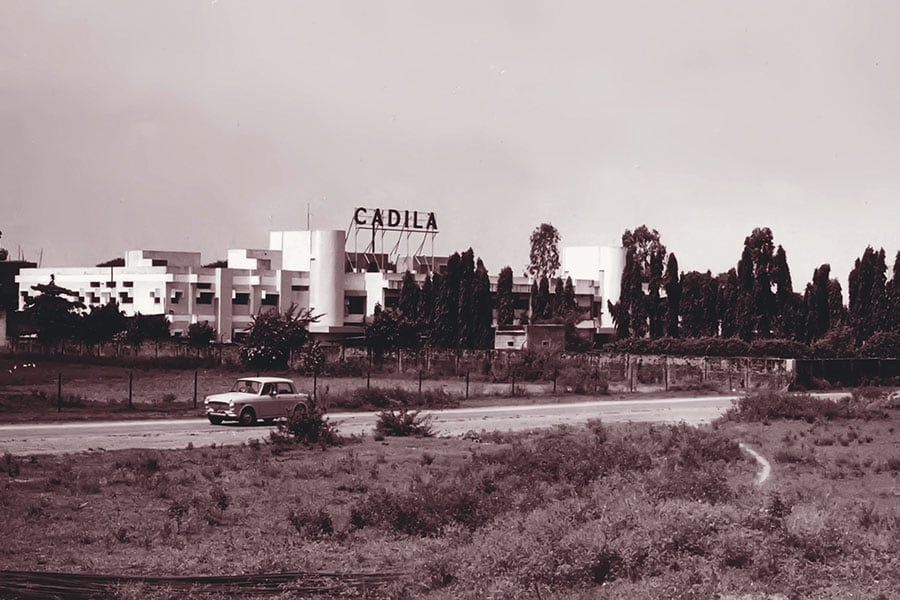 Cadila Laboratories, founded in 1952, set up its first plant in Ghodasar, Ahmedabad
Cadila Laboratories, founded in 1952, set up its first plant in Ghodasar, AhmedabadImage: Courtesy Zydus Cadilla
Zydus Cadila traces its roots to 1952, when Ramanbhai, a former lecturer at LM College of Pharmacy, founded Cadila Laboratories along with business partner Indravadan Modi.
“If you look at our history, when our founder chairman started, it was the era of multinationals and only a few drugs were available in the country and those were very expensive,” Patel says. “We were the first company to launch a few drugs—which were required [in India] like Vitamin B12—for the first time in the country. We also brought drugs that were expensive at better pricing. Our founder was a pharmacist and he knew the place of science.” Among others, Cadila Laboratories manufactured medicines such as Livirubra, the first of its kind in India, to treat pernicious anaemia.
By 1995, the Patel and Modi families split, with the latter’s share being moved to a new company called Cadila Pharmaceuticals Ltd and Cadila Healthcare (Zydus Cadila) became the Patel family’s holding company. Cadila Healthcare eventually listed on the BSE in 2000, while Cadila Pharmaceuticals is privately held and headed by Indravadan Modi’s son Rajiv Modi.
Since that split, and subsequent listing, Zydus has been rather aggressively pursuing the Indian and US markets. In 1995, Zydus Cadila acquired Indo Pharma, the first among the group’s many acquisitions. Over the next two decades, the company’s acquisitions included Karnataka-based Recon Healthcare, giving it a fillip in the southern markets, Liva Healthcare, a dermatology-focussed pharmaceutical company, Carnation Nutra-Analogue Foods Ltd that manufactured Nutralite, and Mumbai-based Biochem Pharmaceuticals.
“We are in vaccinology. We are present across small molecules on the generic side. We are present in the monoclonal side. So we have a presence across technology platforms that allows us to innovate and that has been built meticulously since 2000,” the 42-year-old says. In 2018, Zydus Wellness, a subsidiary of Zydus Cadila, acquired Kraft Heinz subsidiary Heinz India for ₹4,595 crore that included popular brands like Complan, Glucon-D, Nycil and Sampriti Ghee.
“We are now present across the value chain,” says Patel. “While we are present in the pharmaceutical space in terms of medicines, we are also present in the animal health business. We are the number two animal health company in the country. Besides, we have a large consumer wellness play with the acquisition of the Heinz portfolio.”
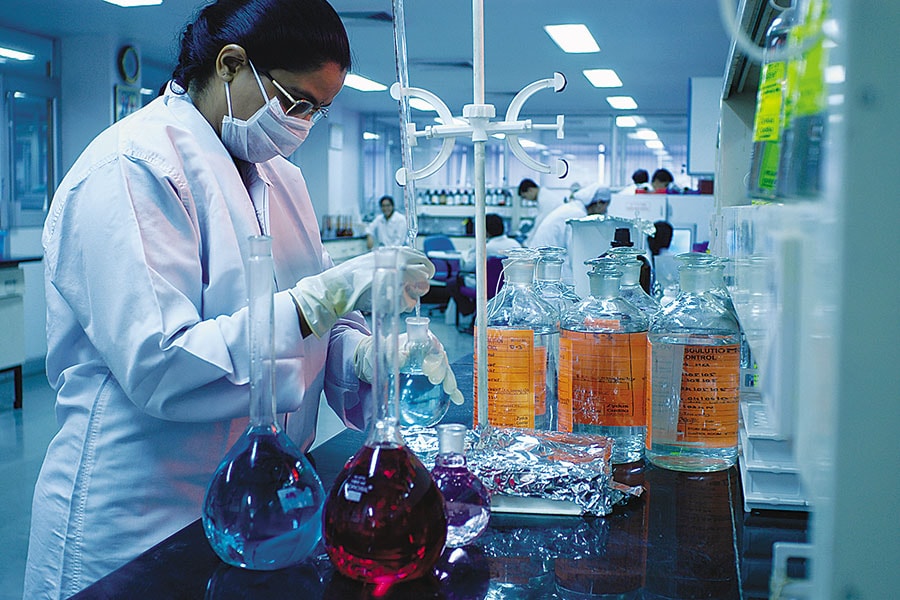 The Zydus team began working on two approaches for a potential vaccine in February 2020, when the genetic sequence of the coronavirus was made available
The Zydus team began working on two approaches for a potential vaccine in February 2020, when the genetic sequence of the coronavirus was made availableImage: Courtesy Zydus Cadilla
The DNA Vaccine
Much of the company’s decision to place its bets on the DNA-based platform came with two main intentions. While there is a focus on making it affordable, Zydus is also looking at an option that can provide long-lasting immunity. The latter means that it is testing out formulations of up to three doses in the ongoing Phase 2 clinical trials.
Currently, vaccines developed by Pfizer and Moderna are built on the mRNA platform, while Johnson & Johnson’s vaccine is on a non-replicating viral vector, like Russia’s Sputnik V. British pharmaceutical giant AstraZeneca is developing its vaccine on a viral vector platform, while Hyderabad-based Bharat Biotech, another company that is developing an indigenous vaccine candidate Covaxin, is using the inactivated virus platform.
“DNA-based vaccines are different,” explains Patel. “They have a slower, but more sustained response and build immunogenicity over time with multiple doses, unlike many vaccines in which antibodies will shoot up and go down [on being administered] because of a rapid response.”
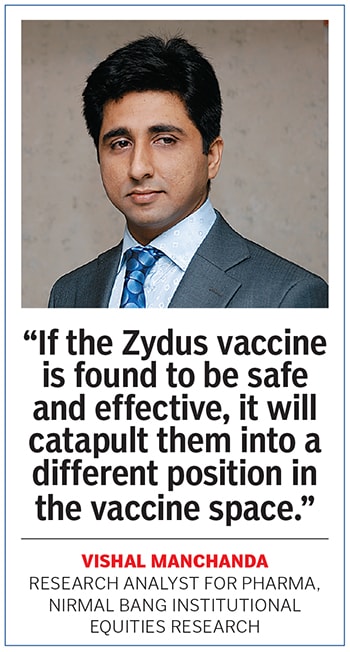
Unlike other vaccine candidates that are intramuscular, Zydus is planning to bring out ZyCov-D as an intradermal shot. This means it will require very small doses to be given at the site, will be “almost pain-free” and easy to administer as one does not need a long needle to go into the muscles, he adds. “Many vaccines face various issues like redness, soreness, swelling, fever etc, and many a times that’s got to do with the needle and the injection. An intradermal shot will do away with all of that.”
Apart from vaccine formulations, the company is also trying out multiple devices, so that each vial can administer up to 10 doses. While the company is currently testing formulations for up to three doses, the final dosage for the candidate will be clear only after the results of the Phase 2 trials are studied in December. “We have tried up to three doses,” Patel says. “When you do a Phase 2 study, you are trying to see what levels of antibodies you can get based on the number of doses. So, at the moment, we don’t know how many doses it will be.”
Globally, eight vaccine candidates are currently under various stages of development using the DNA platform. Of these, the DNA vaccine being developed by Pennsylvania-based Inovio Pharmaceuticals is in its Phase 2/3 trials, while Osaka-based AnGes Inc’s DNA vaccine is currently in its Phase 1 and 2 trials. The others are still in Phase 1 or pre-clinical trial stages.
“Zydus’s prospects are just as good as anybody else’s,” immunologist Satyajit Rath tells Forbes India. “All these platforms [ultimately] work toward getting the viral protein into the body so that the immune system can respond. For that, you can either make the protein outside and inject it into the body or you can inject the code as either DNA or RNA for the body to make the proteins and prompt an immune response. That’s really all there is to it,” says Rath, who is a scientist at the National Institute of Immunology. “The ease of repurposing the vaccine in case the coronavirus mutates is more or less the same across platforms. What can be done for DNA can also be done for RNA or protein, just as easily.”
That’s also probably why he believes it is just “accidental” that only a few vaccines being developed on the DNA platform have reached the Phase 2/3 trials as compared to other platforms. “But that’s simply the matter of individual development trajectories of companies rather than it having anything to do with the platform itself,” he says.
Meanwhile, the global frontrunners for the vaccine, developed by Pfizer and Moderna, are likely to face supply constraints, particularly in developing countries due to their need for extremely cold temperatures for storage at -70 degrees Celsius and -20 degrees Celsius, respectively.
It’s something Zydus will not have to worry about. In terms of a cold chain infrastructure, the ZyCov-D requires the regular 2 to 8 degree Celsius temperature. “And we’ve already demonstrated that up to four months, it will be stable at 25 degrees also,” says Patel.
That has meant that the company has started at-risk manufacturing of a couple of lakh small doses while awaiting the results of Phase 3 clinical efficacy trials, to scale up to 100 million doses yearly. The doses will be manufactured in its new plant in Ahmedabad, which Prime Minister Narendra Modi visited as part of his three-city Covid-19 vaccine tour on November 28.
The company is also looking at potential partnerships to manufacture an additional 50 to 70 million ZyCov-D vaccine doses, apart from being in talks with a few global vaccine developers for licensing and technology transfer that will enable Zydus to bring their Covid-19 vaccine candidates to India. The company has already committed and spent over ₹500 crore for its Covid-19 vaccine development programme.
(This story appears in the 30 November, -0001 issue of Forbes India. To visit our Archives, click here.)



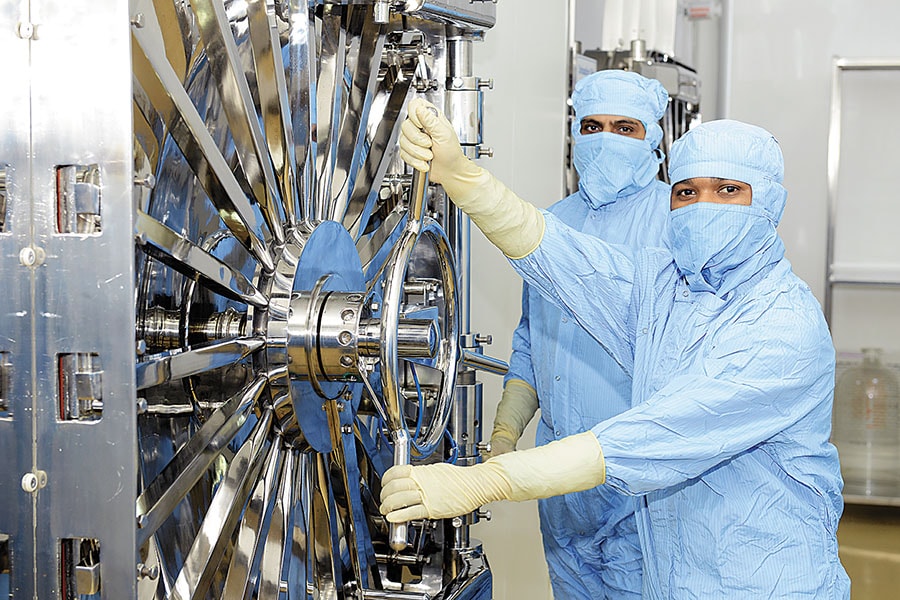 Besides vaccines, Zydus is also betting on therapeutics and antivirals to combat the coronavirus, apart from manufacturing diagnostic kits
Besides vaccines, Zydus is also betting on therapeutics and antivirals to combat the coronavirus, apart from manufacturing diagnostic kits



